We are a globalized society. It didn’t begin suddenly, almost overnight, with the advent of the Internet and instant communications. It has been an ongoing development since the beginning of the twentieth century, when world trade turned into world conflict and ultimately, world war. The world became smaller once the means became available to fly anywhere we wanted and arrive within twenty-four hours. Our vision of the world expanded through radio and television. It was the Internet, however, that gave the world a voice.
The greatest fear existing within our globalized society today is that a singular world power is being created instead of autonomous, self-supporting systems. Although social globalization has become more integrated, with greater cultural intermingling, countries are still pitted against each other for reasons of race, religion or political orientation. We still shudder behind walls at the rumors or reality of terrorism. We still have a great deal of economic disparity. Many countries within the underdeveloped regions are not able to compete in the global market as the value of their currency, and consequently their natural resources, is manipulated by the larger, more powerful nations.
Free trade agreements, meant to allow greater ease in exporting and importing goods through lifting of the duties and tariffs have benefited large businesses and investors more than it has workers. In developed countries, more jobs are lost and transferred to lower cost countries, while the multi-national corporations settling in the underdeveloped regions are not only paying lower wages, they also create unsafe work conditions, show an unconcern for the environment, mismanage the natural resources and produce ecological damage.
In the Interest of Patriotism
Patriotism seems almost as natural as breathing. Most people are proud of their country of origin, and do not want to lose their autonomy. They perceive globalization as a threat to their way of life, but the threat has little to do with their cultural identification. With economic globalization has come an increase in prison and children labor, labor in unsafe and inhumane work conditions, and an increase in human trafficking.
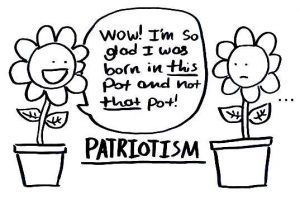 Emotive language such as “freedom” and “human rights” fan the fires of patriotism and is used by globalists for promoting free trade interests in developed countries. Theoretically, by infusing foreign capital and technology, underdeveloped countries will have a chance to develop economically and spread their prosperity. This would create the conditions for which democracy and respect for human rights may flourish. In most cases, this has not happened.
Emotive language such as “freedom” and “human rights” fan the fires of patriotism and is used by globalists for promoting free trade interests in developed countries. Theoretically, by infusing foreign capital and technology, underdeveloped countries will have a chance to develop economically and spread their prosperity. This would create the conditions for which democracy and respect for human rights may flourish. In most cases, this has not happened.
In many cases, the new-found wealth only energized an already elite segment of society and produced the opportunity for investors to practice unfair labor management that would be illegal in their own countries of origin.
Nationalization and the Globalist
Nationalization of assets is one of the biggest stumbling blocks of corporate interests seeking to invest in offshore holdings. Nationalization is nothing new to Western countries. The United Kingdom has an extremely long history of nationalization, starting in 1868 with its telegraph services. In the US, rail service was nationalized in 1971 with AMTRAK, and in 2001, after the 9/11 attacks, airport security was nationalized.
Nationalization occurs when the government takes over privately owned corporations, industries and resources, without or without compensation. The most common reasons for nationalization are a) to prevent unfair exploitation and large scale labor lay-offs, b) to fairly distribute the wealth from natural resources and c) as a means of generating wealth in public control.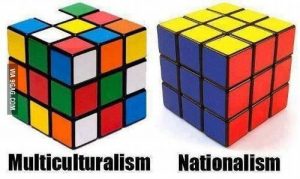
Over the last few decades, a number of countries have nationalized their banks. This often occurs as a temporary measure for stabilizing a nation’s deflating currency, although sometimes as a means of enforcing responsible management. Nationalized banks tend to invest in various assets already belonging to the state, such as natural resources, transportation or utilities, while private banking generally invests in real estate and stocks.
One of the strongest arguments made for the nationalization of banks occurred after the US housing bubble burst in 2008. The wide-spread effects rocked the world’s economy, causing a large number of banks to shut down. Instead of sinking trillions of dollars into their failed banking systems, Sweden and Norway chose to nationalize their banks. Sweden currently has one of the strongest economies in Europe, while Norway shows slow, but steady economic growth.
Many countries nationalize particular assets, such as fossil fuels, utilities, airports, canals and railroads. Typically, the more a country nationalizes its assets, the greater the opposition it will receive from globalist advocates of free trade. Some examples of countries with nationalized assets include Cuba, Russia, Argentina and Venezuela. In many of the less developed countries, the tendency to turn natural resources over to the control of the government has been so great, investors have been cautioned to reconsider their applications.
The Global Connection
Nationalized countries are as patriotic as democratically run countries. Their ideals are the same; to create a better standard of living for their overall populace and retain their autonomy as an independent country. The difference is that instead of placing their mutual trust in corporations to deliver a prosperous society, the trust is placed in government management. For globalists, then, trust must be cultivated at the government level.
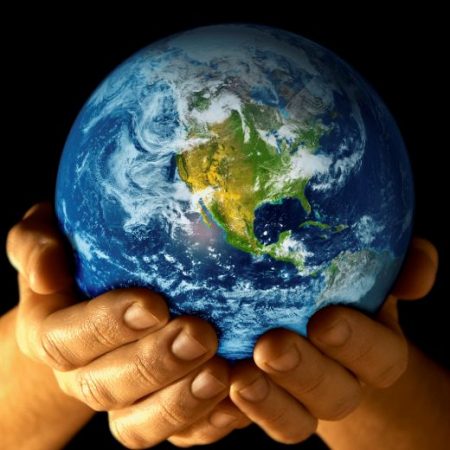 Perhaps the most poignant of the globalist rallying cries has been the universal stance among scientists and environmentally aware groups to monitor and correct environmental pollution and restore balance to sensitive ecological systems. However, for globalists pitching their hats in the political arena, this stance has been lip service only. There has been no implementation of radical changes among world trade partners to restore the earth’s balance. Efforts have been individual and guided by individual consciousness.
Perhaps the most poignant of the globalist rallying cries has been the universal stance among scientists and environmentally aware groups to monitor and correct environmental pollution and restore balance to sensitive ecological systems. However, for globalists pitching their hats in the political arena, this stance has been lip service only. There has been no implementation of radical changes among world trade partners to restore the earth’s balance. Efforts have been individual and guided by individual consciousness.
A New Idea
Globalization fears have never been more emphatically expressed than in the election of Donald Trump to the US presidency. Focusing his campaign on an anti-globalist platform that would nationalize American industry, he carried away a crowd who feared the repercussions of a one world government. The fears were realistic. We have a globalized economy. Global transportation has transformed the work place, making it more competitive and globalized communications has produced an era of instant information in everything from new technical applications to personal files.
What proponents of anti-globalism have failed to realize is that when it comes to environment, we’re all in this together. Pollution leads to diseases, global transportation to their spread. A release of toxic wastes into ocean waters in one part of the world, harms the overall marine life in a domino effect. The problem is, unless we are directly at the effect, we seldom see the cause.
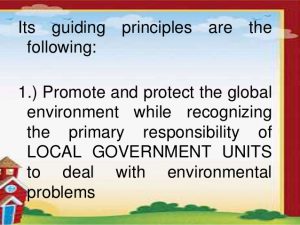 Paul Kingsnorth, in an article published in The Guardian, March 18, 2017, proposed the idea of nationalist environmentalism. Nationalism, he stated, was a community focused attitude, in which a nation, tribe or ethnic group was seen as something of value to be loved and protected.
Paul Kingsnorth, in an article published in The Guardian, March 18, 2017, proposed the idea of nationalist environmentalism. Nationalism, he stated, was a community focused attitude, in which a nation, tribe or ethnic group was seen as something of value to be loved and protected.
Nationalized natural resources leave their development or appreciation of their natural state, directly in the hands of the local populace instead of vulnerable to the whims and will of corporate interest. As stated by Kingsnorth, the wild lands President Trump wishes to now leave to the exploitation of billionaire companies were first set into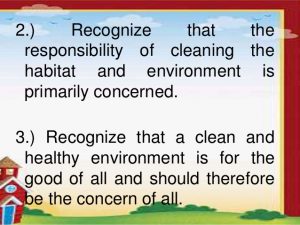 place as protected lands by another Republican populist president, Teddy Roosevelt, who used his presidency to save 230 million acres of land. “We have fallen heirs to the most glorious heritage a people ever received,” he wrote. “And each one must do his part if we wish to show that the nation is worthy of its good fortune.”
place as protected lands by another Republican populist president, Teddy Roosevelt, who used his presidency to save 230 million acres of land. “We have fallen heirs to the most glorious heritage a people ever received,” he wrote. “And each one must do his part if we wish to show that the nation is worthy of its good fortune.”
United but Separate
As a global society, we have learned greater tolerance and a better understanding of differing cultures and their ethnic/ religious beliefs. We’ve become more homogenized in our extended awareness. We still have allowed our fears to govern our actions, however, when choosing the leaders that will interact with the global community. We still allow emotive language to be our guide instead of taking the time to clearly and rationally examine the issues. We still choose candidates that do not reflect the public’s best interests, but instead, create policies that drive a deeper wedge into a nation that is no longer united.
There are no heroes in the globalist/ anti-globalist game, only contenders for the top position on the world stage. The environmental globalist is as much a myth as the nationalist who would plunder a nation’s treasures and sell them off to the highest bidder. It will take a long time to end the destruction caused by free trade irresponsibility, but as a global society, we can begin by protecting our natural resources.

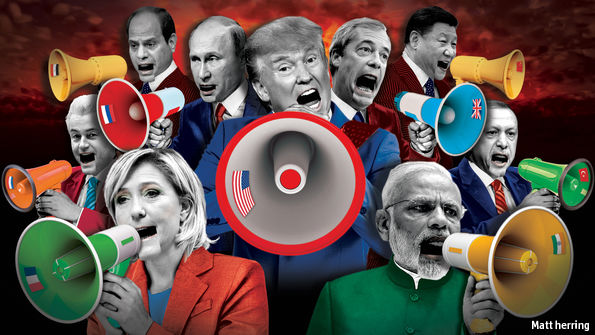

They are getting yourself into the “statin drug loop”—a dangerous loop
indeed, that you commence to experience more unwanted side
effects in connection with fatigue and overall muscle weakness than your initial problems.
So, when I was told the foodstuffs to avoid high-cholesterol,
I will readily admit, I did not listen. I was surprised
to find that I didn’t really undergo too many ups and downs.